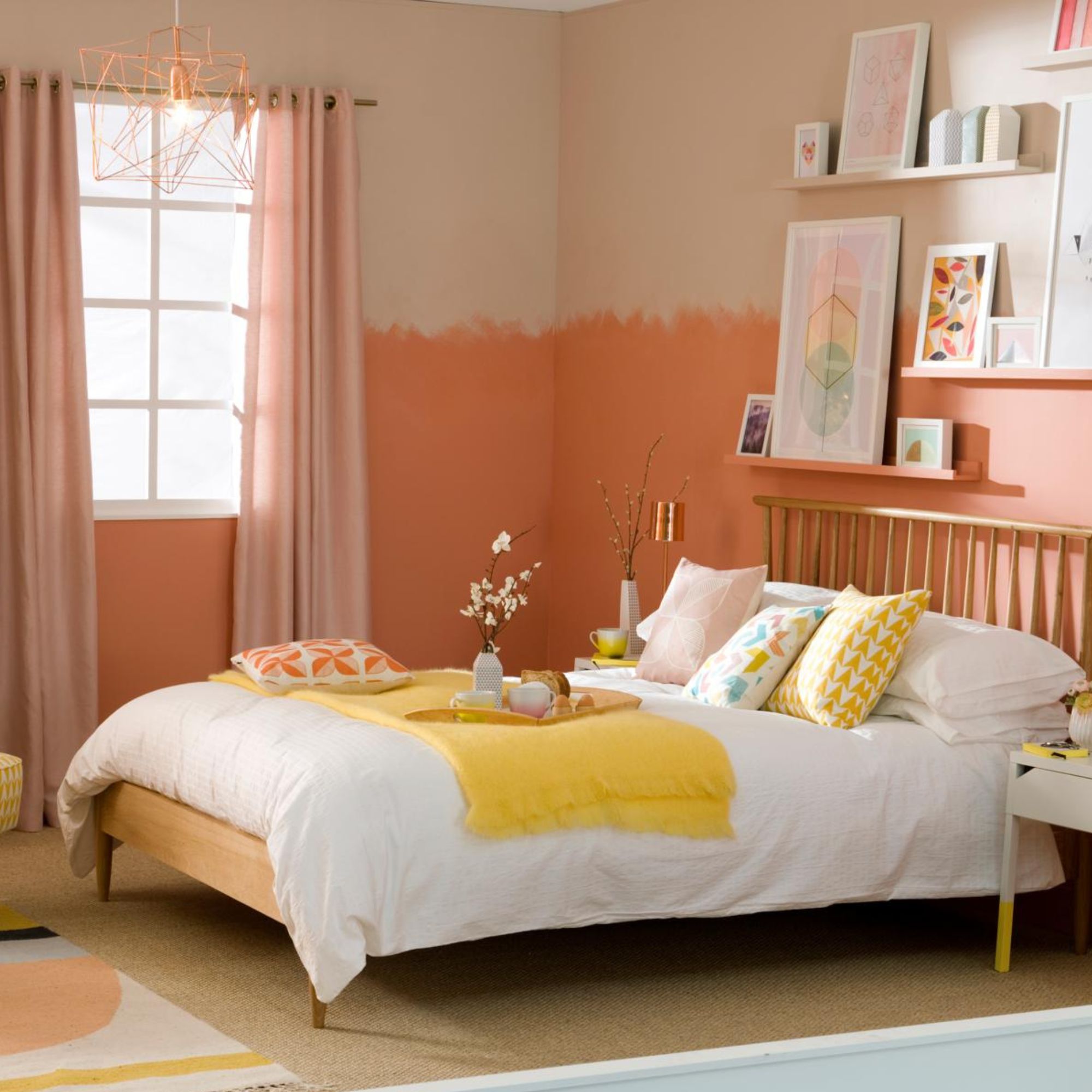
Have you ever wondered what your bed position says about you? If you hadn't before, you'll likely be curious now – especially if you're planning on making any of your dreamy bedroom ideas a reality in the not-so-distant future.
We suppose it makes sense: after all, bedroom trends may come and go, but it is our personality that largely dictates where we find our bedroom decor inspiration.
Which means, yes, that many people believe that the choices we make with regards to our bedroom layout won't just convey messages about who we are; they contain clues that can help us better understand ourselves, too.
What your bed position says about you
‘Your bedroom is your sacred place, where you retreat every night to reflect, recalibrate and recharge,’ says Theresa Cheung, expert dream decoder and bestselling author of The Dream Dictionary.
‘It is a personally sacred and intimate space where you can be yourself, so of course how you arrange it will reflect your personality style.’
With that in mind, then, we asked Theresa to decode what your bed position says about you – and it made for an eye-opening read...
1. One side against the wall
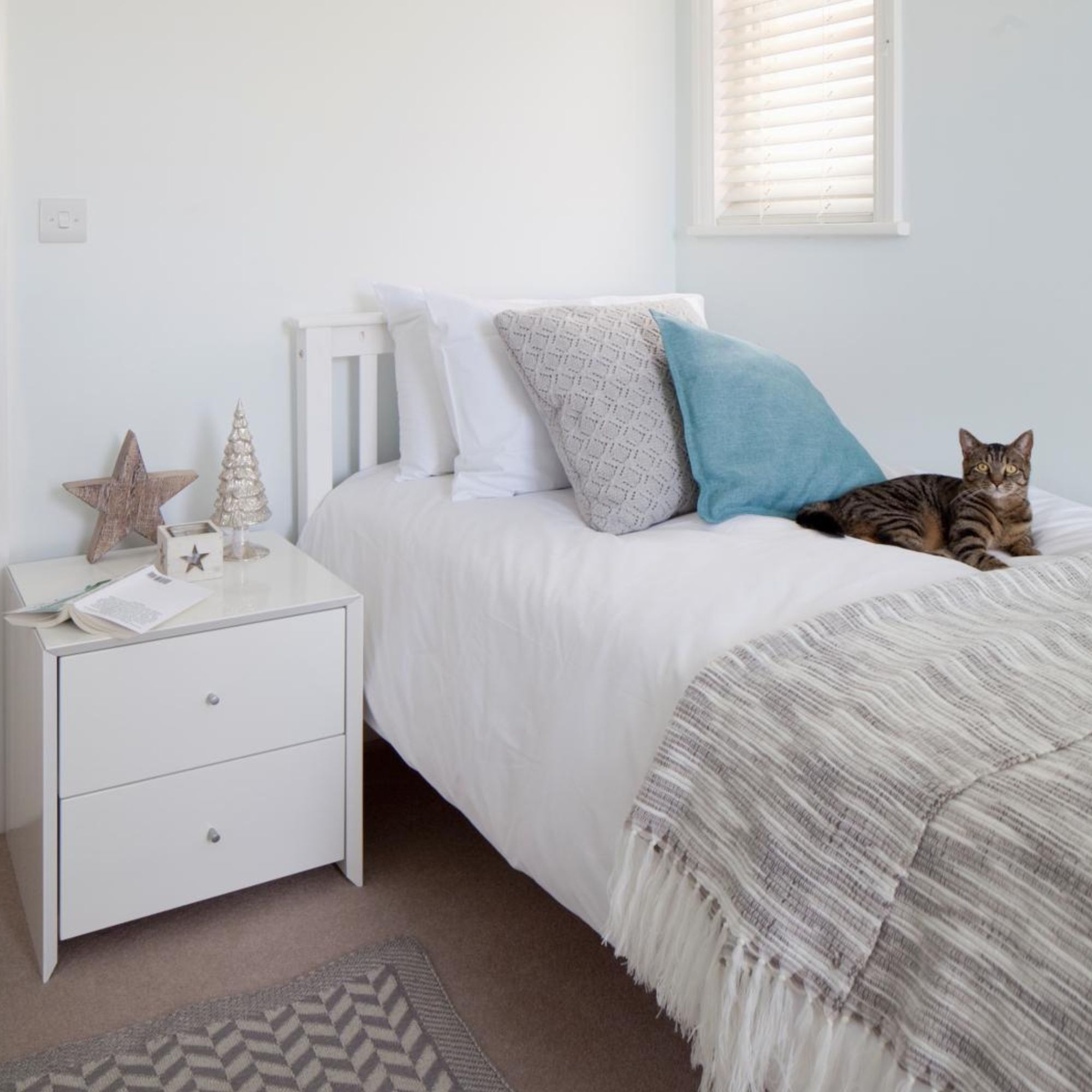
When it comes to sussing out what your bed position says about you (other than floorplans and the space you have available, that is), Theresa says one of the easiest to decode is the bed with one side against a wall.
'Feeling secure is very important to you, and while this means you are loyal and trustworthy and people can depend on you, it can suggest an unwillingness to go outside your comfort zone,' she says.
'If this is your preferred bed position, make sure you challenge yourself with new perspectives and experiences. Don't go overboard – just take a (calculated) risk now and again. Success isn't found in your comfort zone.'
2. Command position
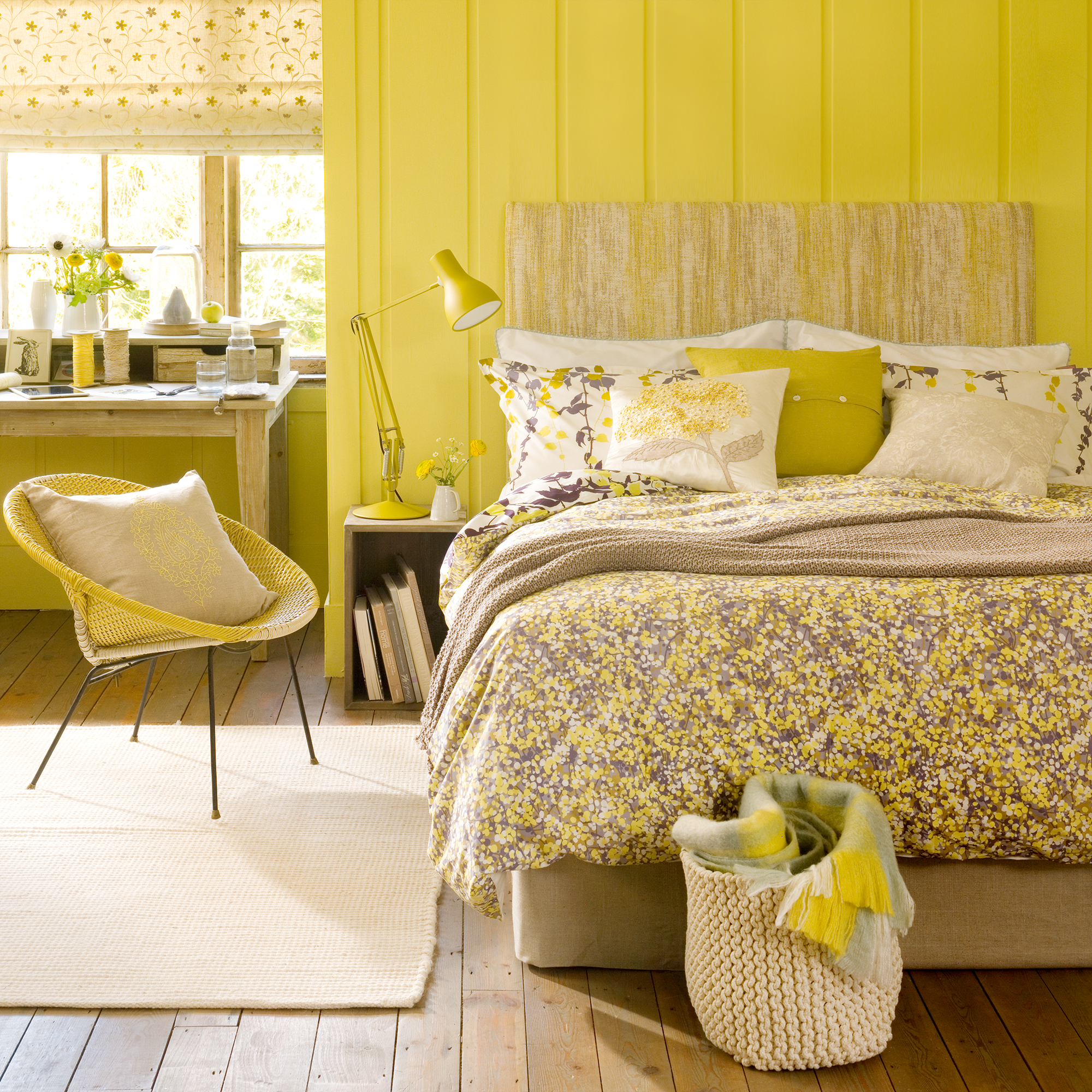
Wondering what your bed position says about you if you sleep facing the door but not directly in line with the door? This is called the command position in Feng Shui bedrooms, and, as you've likely guessed from the name, is a very positive one.
'It suggests you are someone who is empathetic and who can see the bigger picture and understand other perspectives apart from your own,' says Theresa.
'This expansive viewpoint will serve you very well and you are much in demand, as long as you remember to set boundaries and value your own happiness as much as the happiness of others.'
3. Headboard against a wall
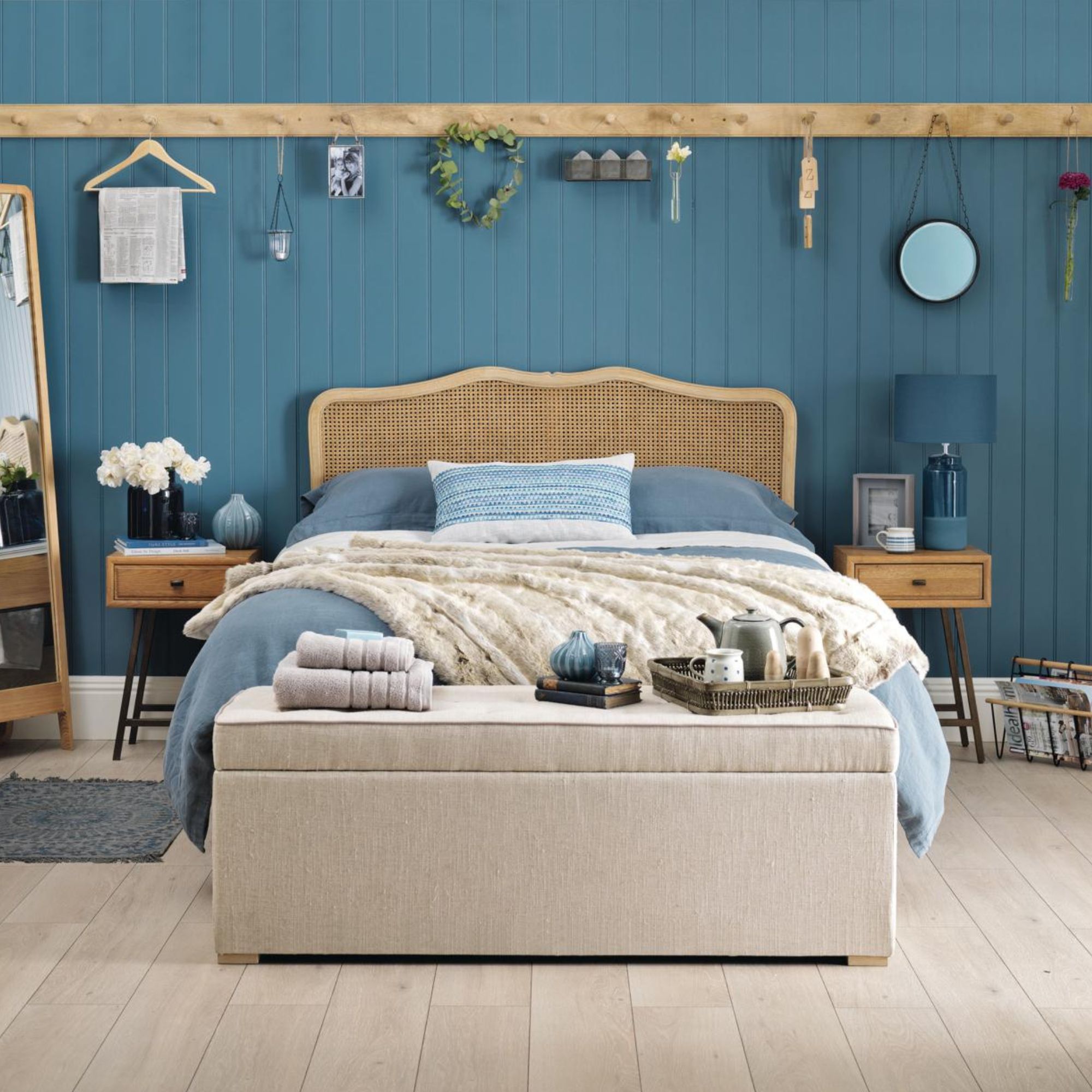
It's an oldie, but a goodie – but what does your bed position say about you if you have your headboard against a wall?
'You tend to be fairly level headed and rational in your approach to life,' says Theresa, 'and are likely to be a great debater and knowledgeable conversationalist, often holding court with other people who instinctively seek out your opinion and advice.'
Noting that those who allow our oversized headboards to take the spotlight tend to be natural leaders, Theresa adds that you just need to 'make sure you place as much value on your creativity as you do on your logic'.
'Finding balance between the two is the key to your happiness,' she adds.
4. Coffin position

When you hear the word 'coffin', it's hard not to assume the worst. However, Theresa offers up an intriguing (and optimistic) spin on this classic Feng Shui no-no.
'In Feng Shui, this is considered an unlucky bed position because your are directly facing the door, and therefore at the mercy of outside forces beyond your control,' she explains.
'However, if your bed is in this position, don't panic. You can turn it to your advantage by understanding that your thoughts, feelings and actions are always within your control and what you believe, feel and do is often what you attract.'
Essentially, she says that 'you can simply choose to let go of suspicion and believe good things are coming through your door'. Win!
5. Headboard under a window
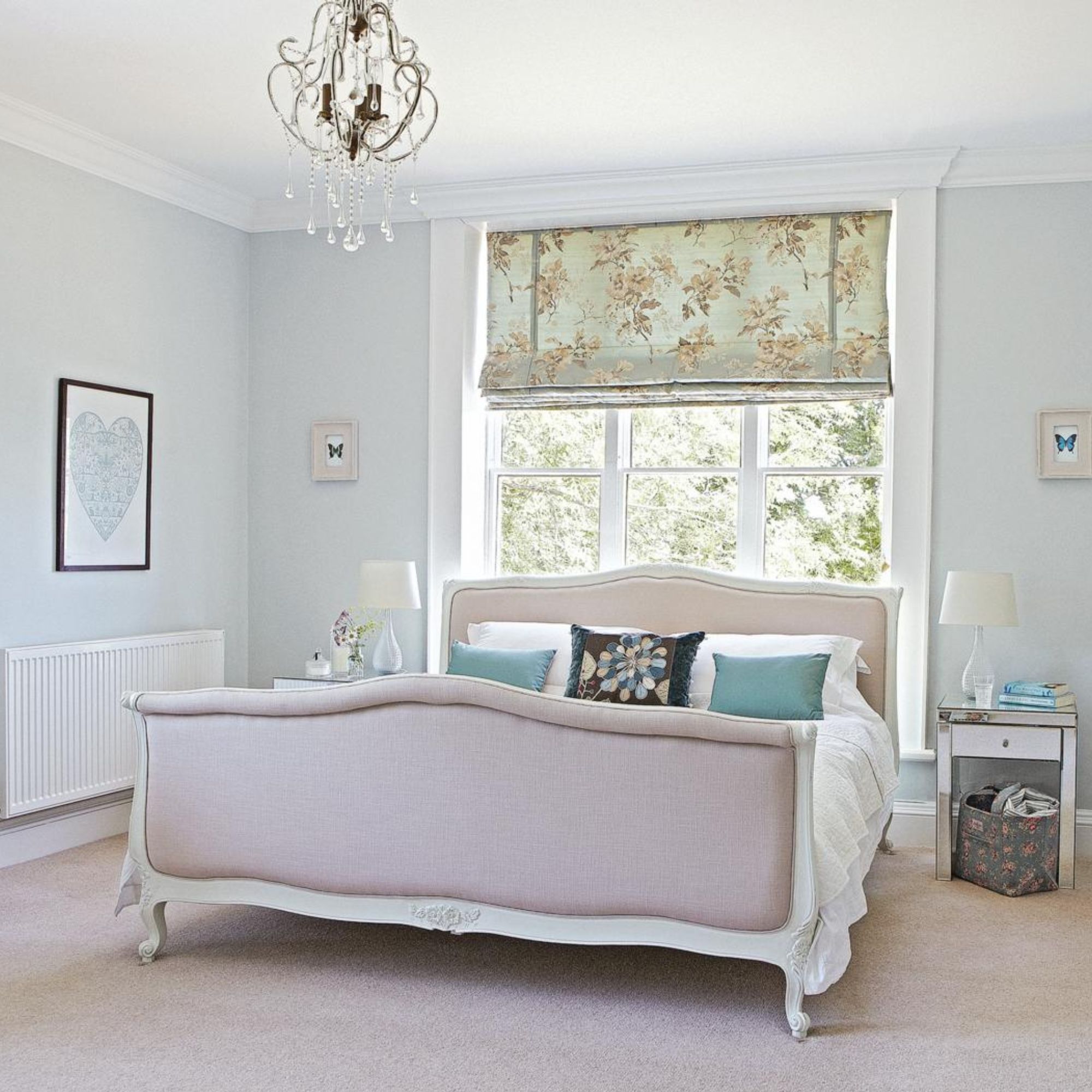
This writer was especially keen to know what this bed position says about you (for obvious reasons), and was incredibly pleased when Theresa explained that it signifies a 'highly intuitive person'.
'Instead of second-guessing your gut instinct ,start trusting it instead,' she advises, 'because more often than not it is right.'
While it may make bedroom curtain ideas trickier to implement than they may be for others, Theresa notes that those sleeping in this bed will be far too involved in deeper matters to notice.
'You are at your happiest when close to nature, animals and living things, which means that your personal and spiritual growth is your compass and your inspiration,' she says.
6. Floating
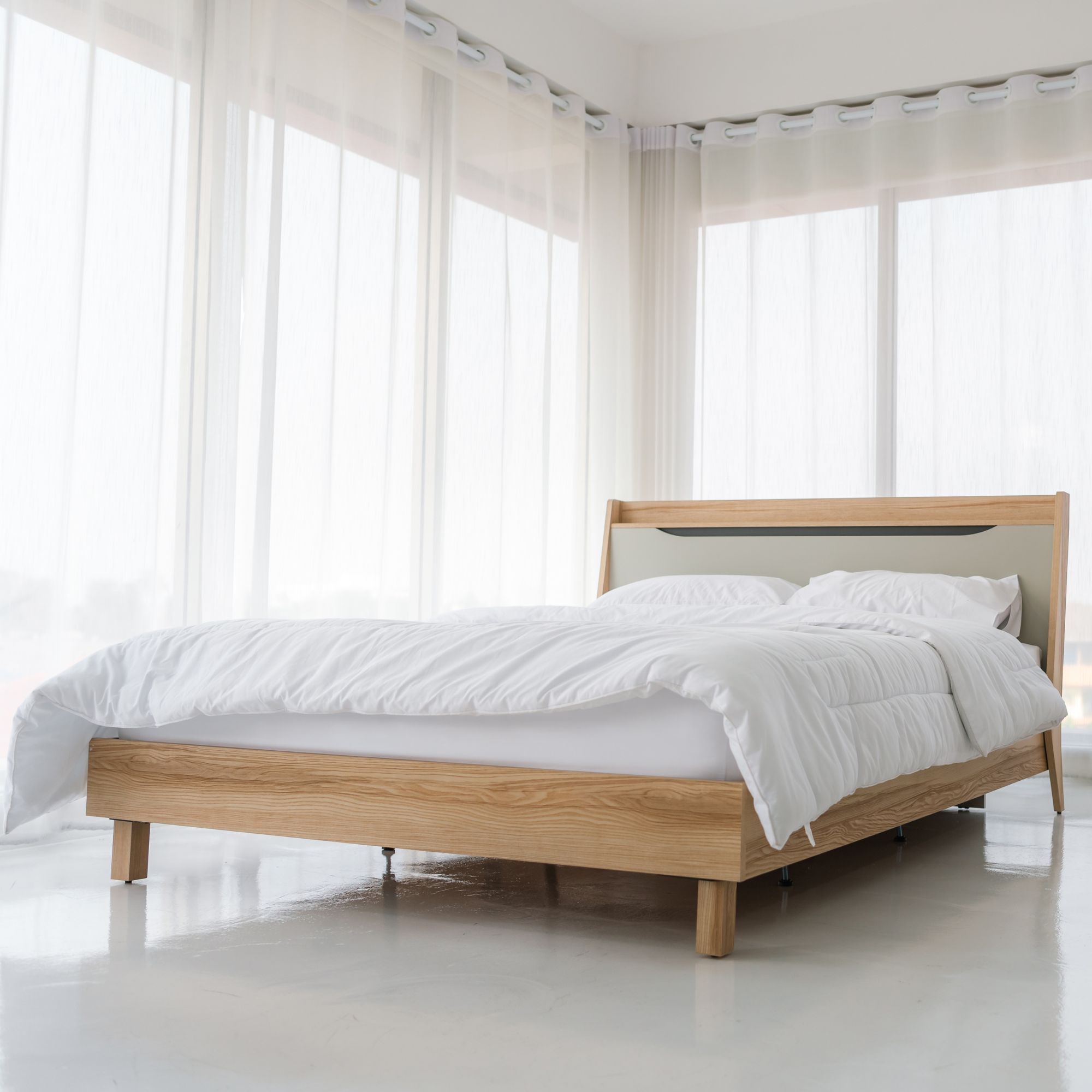
No, we don't mean floating floating; rather we mean the art of positioning your bed so that it doesn't touch any walls. Instead, it 'floats' in the room, with space all around it (no surprises, this one is usually favoured by people with palatial homes).
'You are one of those people who love to go with the flow,' says Theresa. 'You are sociable, trusting and a natural adventurer and because you believe even the sky isn't your limit, you tend to attract abundant opportunities your way.'
Still, while it's a positive bed position, Theresa adds that those lucky enough to have a floating bed need to 'make sure that you don't neglect the importance of patience and dedication and the satisfaction commitment can bring'.
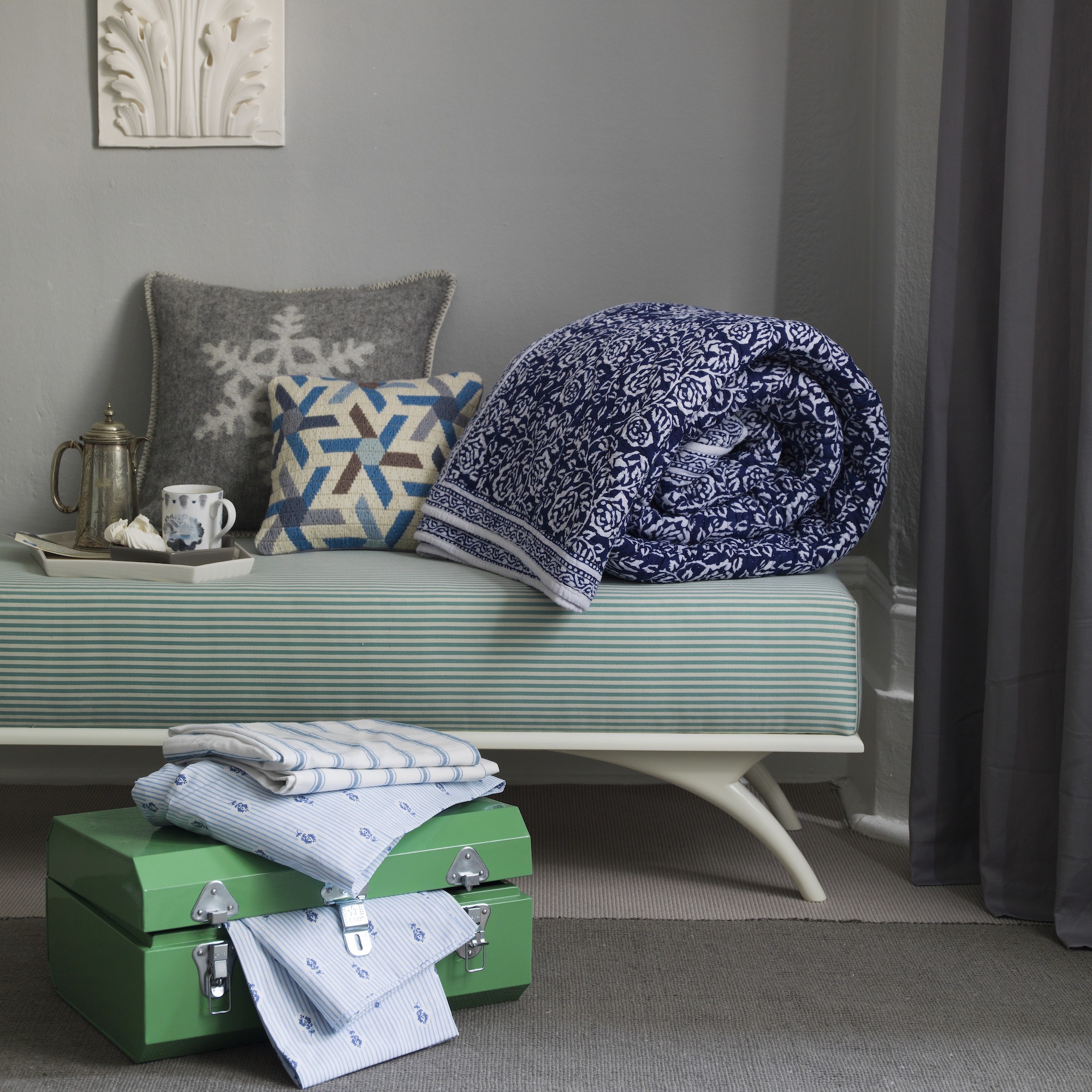
Unhappy with what your bed position says about you? Well, while Theresa has based her findings on a study published by the University of Texas at Austin, therapsit Dr Kalanit Ben-Ari urges readers to take all of the above with a healthy pinch of salt.
'Personality is a complex and multi-faceted construct that is influenced by a variety of factors, including genetics, upbringing, life experiences, and individual traits,' she says firmly.
'While aspects of a person's environment, including their bedroom and bed placement, may impact their mood or well-being to some extent, it would be overly simplistic to draw direct conclusions about personality solely based on the position of the bed.
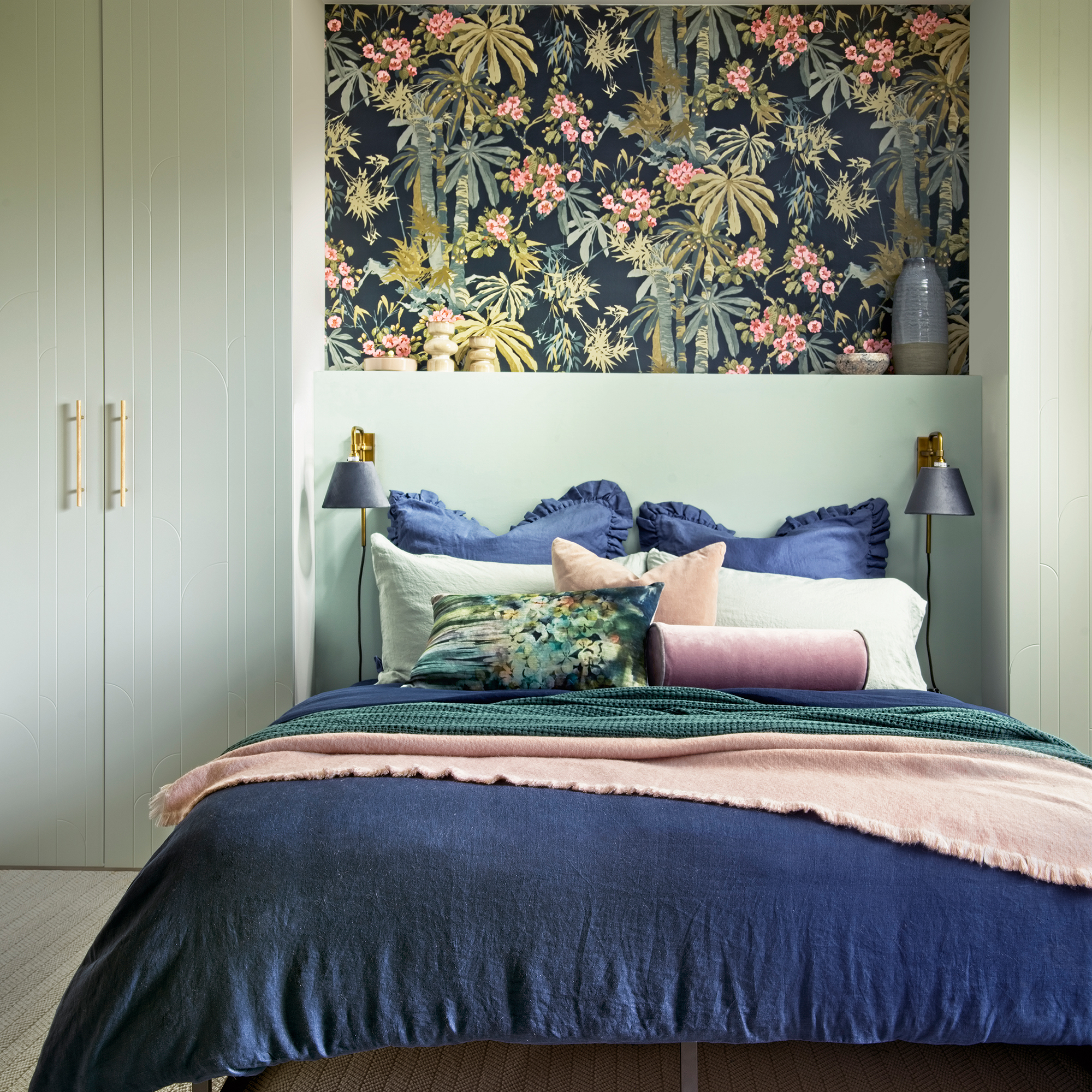
'The layout and size of the room may also influence the placement of the bed. And factors such as the location of windows, doors, electrical outlets, and availability of wall space can affect the options for bed placement,' adds Dr Kalanit.
Instead of worrying about what your bed position says about you, then, Dr Kalanit goes on to suggest that you focus on prioritising comfort.
'Some individuals may feel more relaxed when their bed is against a particular wall or facing a specific direction,' she says. 'Experimenting with different arrangements may help individuals find a configuration that feels most comfortable to them.'
If you need some help getting started, we recommend you check out our pick of the best small bedroom ideas – or, you know, find a way to get that bed floating!
What does your sleeping position say about your personality?
While little research has been conducted into the link between sleeping position and personality, modern spirituality expert Theresa believes that your sleeping position can impact your dreams.
'Front sleepers tend to have more erotic dreams, back sleepers more vivid and highly creative dreams ,and side sleepers cathartic, healing dreams,' she explains.
Studies have shown that left-sided sleepers tend to be more optimistic than right-sided sleepers. 'If you love to curl up in a foetal like ball every night you are likely to be highly sensitive and intuitive.'
'Listen to the messages your intuition sends you every night in the symbolic language of your dreams,' she finishes.
What bed position means?
Bed position refers to, quite simply, the way you've incorporated your bed into the layout of your bedroom.
'There has been research conducted on the position of the bed in a room and its potential impact on sleep quality, overall well-being, and even the flow of energy in a space,' says Dr Kalanit.
'For example, Feng Shui is an ancient Chinese practice that emphasises the arrangement of objects to promote harmony and balance in a living space.'
Despite this, she adds that, 'while aspects of a person's environment, including their bedroom and bed placement, may impact their mood or well-being to some extent, it would be overly simplistic to draw direct conclusions about personality solely based on the position of the bed.'







